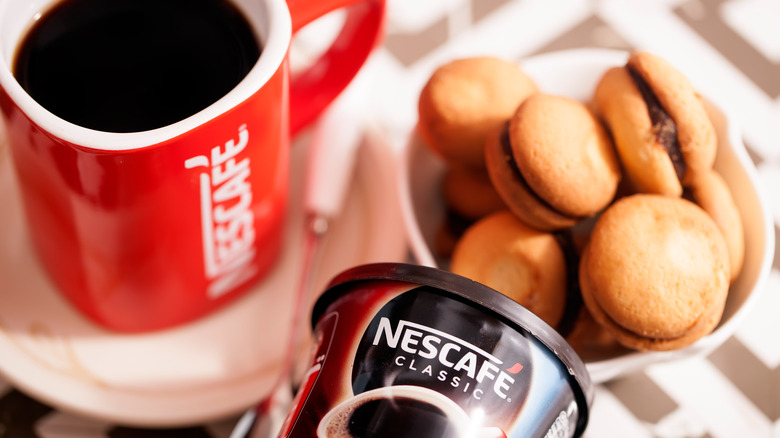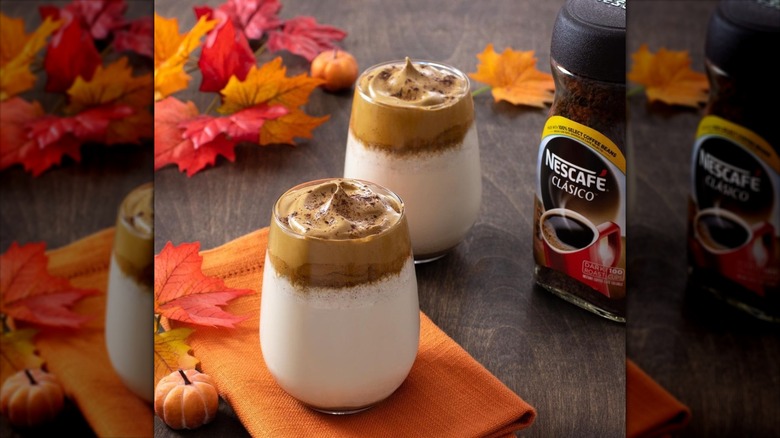Despite Low Stock Nestlé's Increased Prices Have Resulted In Sales Growth
Food inflation continues to rise. According to the Bureau of Labor Statistics' latest Consumer Price Index, the food at home index — which measures the average cost of groceries — has spiked by 13% in the past year. And The New York Times notes that the continued food inflation is driven by several factors, from rising fuel and labor costs to the war in Ukraine, and abundant supply chain disruptions.
Of course, food inflation isn't just a problem for consumers. As CNBC observes, food manufacturers are raising prices in response to these challenging conditions, meaning factors such as rising labor costs and supply chain disruptions are forcing food makers to raise prices in order to maintain profitability. But if they raise prices too much, supermarkets may not carry their products, and consumers may not continue to buy them.
Nestlé's recently reported sales figures provide an instructive example of how companies are coping with these difficult problems and the steps that are being taken to ensure continued profitability.
How Nestlé has navigated inflation challenges
Food Business News reports that Nestlé has achieved 9.2% sales growth so far this year, even as its actual number of sales dipped during its third quarter. How is this possible? Nestlé has not only raised its prices — which accounts for most of the growth — but also pursued an aggressive cost cutting strategy by actually eliminating many low performing stock-keeping units (or SKUs). Instead, the company focused on keeping its best performing products on supermarket shelves.
"This strategy, which we call 'cut the tail to push the head,' is one of our ways to counter cost pressures and supply chain limitations," Nestlé CEO Ulf Mark Schneider told the outlet. "It is one of several strategies that enabled us to limit the pressure on our underlying trading operating profit margin compared to the reduction we witnessed in our gross margin. Over time, this strategy is also expected to give us top-line benefits through better on-shelf availability and visibility of our core SKUS."
In a press release about its earnings to date in 2022, Nestlé projected that sales growth would settle at about 8% for the year, with an uptick in per share earnings. Many of its best performing products this year in North America have been in the petcare sphere, with Purina Pro Plan, Purina One, and Fancy Feast leading the way. Coffee Mate and Nescafé also posted strong sales, as have Nestlé's baby food and bottled water offerings.

